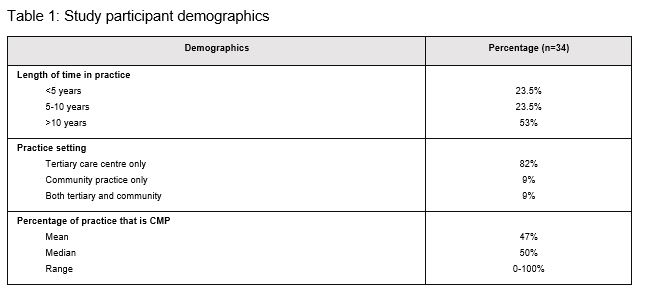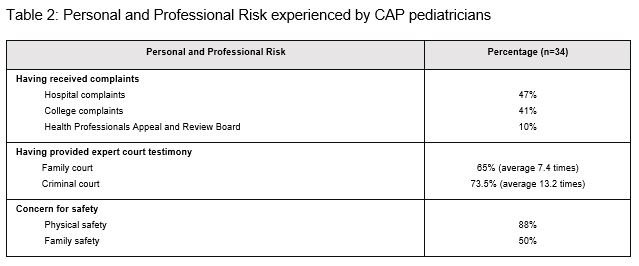Child Abuse & Neglect
Session: Child Abuse & Neglect 1
176 - Professional Risk experienced by Child Abuse Pediatricians: A Mixed Methods Study
Saturday, May 4, 2024
3:30 PM - 6:00 PM ET
Poster Number: 176
Publication Number: 176.1278
Publication Number: 176.1278
- RC
Romy Cho, MD, FRCPC, DRCPSC
Assistant Professor
University of Toronto Temerty Faculty of Medicine
Toronto, Ontario, Canada
Presenting Author(s)
Background: Child abuse pediatrics (CAP) physicians experience a range of challenges related to their practice in this field. While cases can lead to secondary traumatic stress, other stressors such as testifying in court, receiving complaints and perceived risk to personal safety contribute to burnout and increased job turnover. CAP is an area of pediatrics with known staffing challenges. Currently, there is limited understanding of the extent of risk experienced by CAP physicians and which stressors are most negatively impactful.
Objective: This study aimed to understand the scope of professional risk experienced by CAP physicians practicing in Canada and to explore factors that may impact retention in the field.
Design/Methods: An anonymous survey was sent to pediatricians across Canada currently or previously involved in providing medical expert CAP opinions. Participants were solicited from the Canadian Paediatric Society Child Maltreatment section and the registrants for the Canadian Symposium on Advanced Practices in Child Maltreatment. Purposeful and snowball sampling were used to include those who had left the field of practice. Cross-sectional data was obtained using closed-ended and open-ended questions regarding any complaints received or risk to safety felt to be the result of CAP work. Descriptive statistics were used to analyze participant characteristics, complaints received and most challenging aspects of CAP work. Thematic analysis was used to analyze responses to open-ended questions.
Results: 34 CAP pediatricians participated in the survey. The three most challenging aspects of CAP were reported to be scrutiny of opinion, lack of institutional support, and concern about child protection services outcomes. Participants also reported having to testify in family and criminal court, having received complaints and being concerned about their safety. 85% had considered leaving or had left the field of CAP. Approximately 50% felt their organizations did not understand or support their CAP work and did not provide them with adequate resources to complete their work or adequate financial compensation. Organizational strategies which were felt to be helpful included legal consultation, mental health supports, adequate financial compensation, increased staffing to distribute workload, improved understanding of work and improved policies and procedures.
Conclusion(s): CAP pediatricians in Canada experience personal and professional risk and many have considered leaving the field. Support, resources, and strategies at an organizational level are needed to mitigate factors impacting CAP physician retention.


